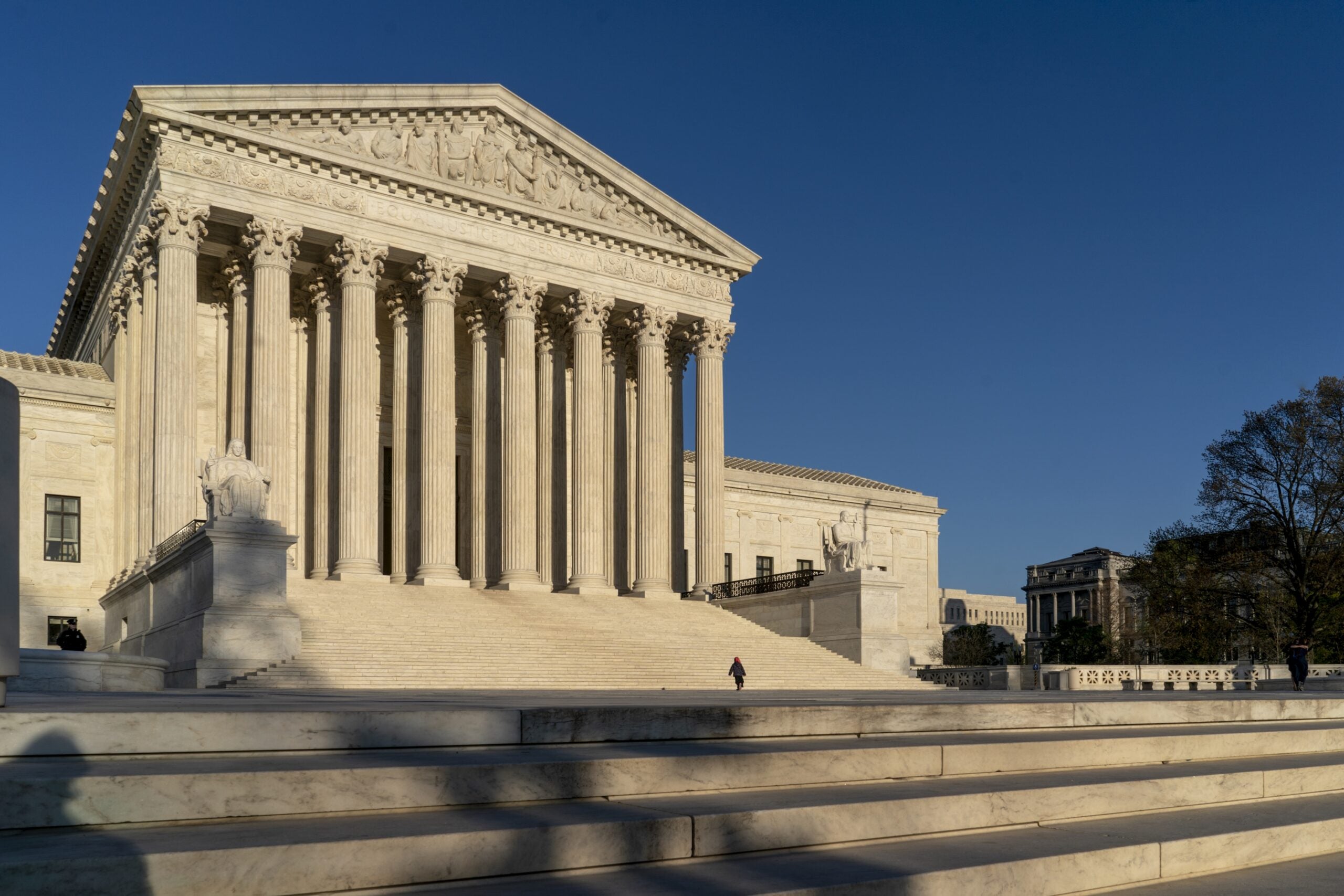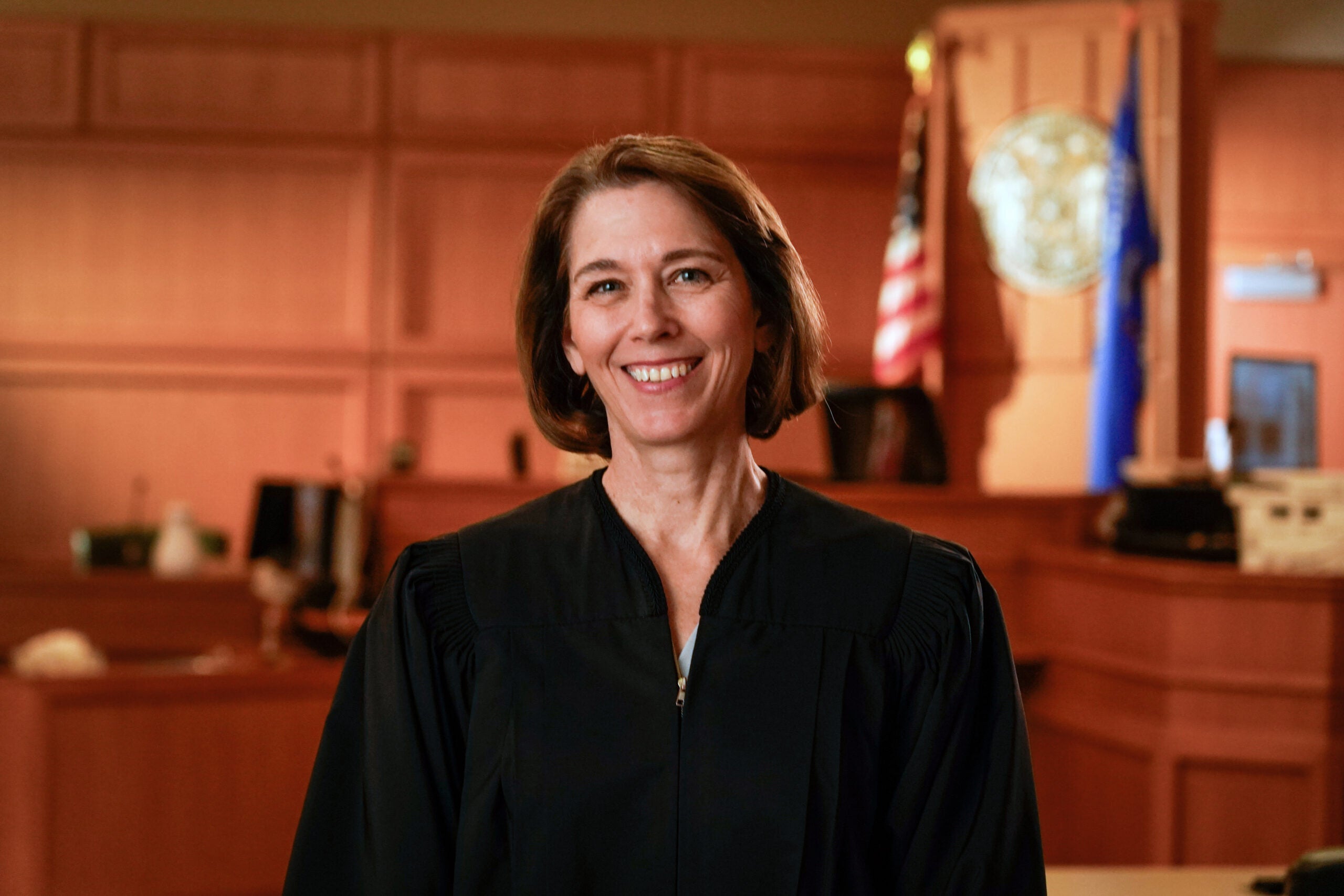U.S. Supreme Court Justice Anthony Kennedy’s decision to retire sent shock waves through America’s political and legal systems Wednesday, and it may have dealt a blow to Wisconsin’s partisan gerrymandering lawsuit.
It was Kennedy’s opinion in a 2004 redistricting decision that kept the door open to lawsuits like Wisconsin’s, and lawyers for the Democratic plaintiffs who sued to overturn the state’s Republican-drawn legislative map built their case with Kennedy’s vote in mind.
Wisconsin’s lawsuit, known as Gill v. Whitford, is still alive after Kennedy and other justices announced last week they were sending it back to a lower court based on a technicality.
Stay informed on the latest news
Sign up for WPR’s email newsletter.
It could end up back before the U.S. Supreme Court again within the next year, but Kennedy’s retirement means he won’t be there to hear it.
“The conventional wisdom was that he had strung out his career for an extra year or two so that he could leave his mark on these redistricting cases,” said University of Wisconsin-Madison political science professor Barry Burden. “He knew that the Gill case was coming and the plaintiffs constructed it in a way that had him in mind as the swing vote, but that’s not been the role he’s played this year. He’s not been a swing vote working with the liberals really on any significant cases.”
Burden said another conservative justice could still form a coalition with the court’s four liberals to strike down Wisconsin’s legislative map.
“But I think the best prediction is that the efforts to do away with maps that are excessively partisan are probably done, maybe for a generation,” Burden said.
A group that helped organize Wisconsin’s redistricting lawsuit disputed that.
Fair Maps Wisconsin Director Sachin Chheda noted that seven of the U.S. Supreme Court’s nine justices, including Kennedy and conservative Justices John Roberts and Samuel Alito, remanded the case, rather than dismiss it outright.
“These justices don’t always fall only on partisan lines,” Chheda said. “Chief Justice Roberts is also the guy who cast the deciding vote to retain Obamacare, which was something that wasn’t expected from political folks at the time.”
Redistricting expert Justin Levitt, professor at Loyola Law School in Los Angeles, said it was too soon to assume how the court would rule should Wisconsin’s case come back on appeal.
“I don’t want to in any way discount Justice Kennedy’s importance to the issue,” Levitt said. “But I also think it’s not a foregone conclusion that whoever replaces him will take a different approach to the issue.”
Levitt said Roberts and Alito have sent hints on where they stand on partisan gerrymandering, but neither of them were on the court the last time a partisan gerrymandering case was decided on the merits.
“They’ve not weighed in on the issue directly yet,” Levitt said. “The fact that the Wisconsin case was not dismissed outright is another tea leaf that people will read.“
In addition to Wisconsin’s lawsuit, two other partisan redistricting cases, one from Maryland and one from North Carolina, could be headed to the U.S. Supreme Court in its next term.
Once Kennedy’s retirement becomes official on July 31, the court will be split 4-4 between justices nominated by Republican presidents and Democratic presidents. But President Trump and Republicans who run the U.S. Senate have said they plan to nominate and confirm a new justice this fall, which would cement conservatives’ 5-4 majority.
Wisconsin Public Radio, © Copyright 2025, Board of Regents of the University of Wisconsin System and Wisconsin Educational Communications Board.







